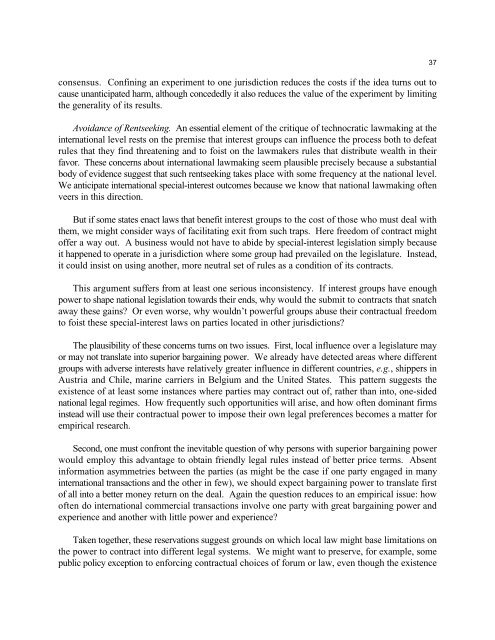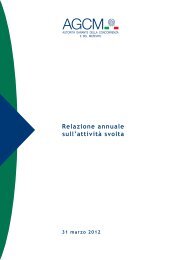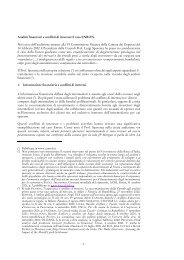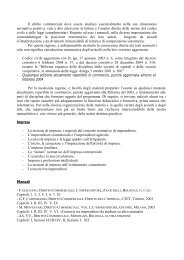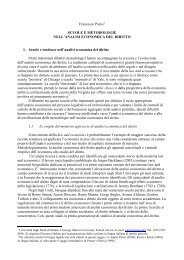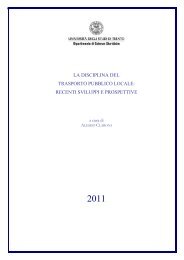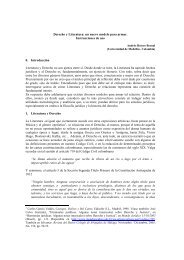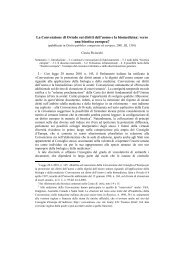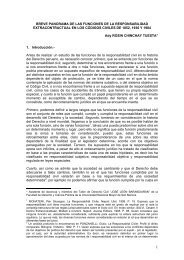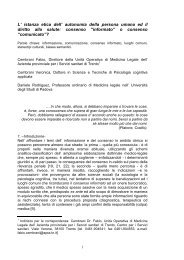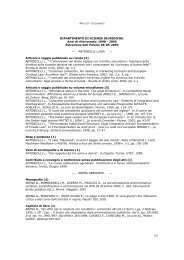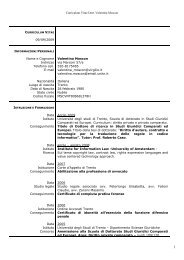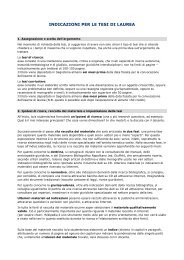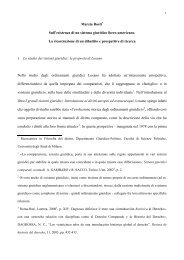The Futility of Unification and Harmonization in International ...
The Futility of Unification and Harmonization in International ...
The Futility of Unification and Harmonization in International ...
You also want an ePaper? Increase the reach of your titles
YUMPU automatically turns print PDFs into web optimized ePapers that Google loves.
consensus. Conf<strong>in</strong><strong>in</strong>g an experiment to one jurisdiction reduces the costs if the idea turns out tocause unanticipated harm, although concededly it also reduces the value <strong>of</strong> the experiment by limit<strong>in</strong>gthe generality <strong>of</strong> its results.Avoidance <strong>of</strong> Rentseek<strong>in</strong>g. An essential element <strong>of</strong> the critique <strong>of</strong> technocratic lawmak<strong>in</strong>g at the<strong>in</strong>ternational level rests on the premise that <strong>in</strong>terest groups can <strong>in</strong>fluence the process both to defeatrules that they f<strong>in</strong>d threaten<strong>in</strong>g <strong>and</strong> to foist on the lawmakers rules that distribute wealth <strong>in</strong> theirfavor. <strong>The</strong>se concerns about <strong>in</strong>ternational lawmak<strong>in</strong>g seem plausible precisely because a substantialbody <strong>of</strong> evidence suggest that such rentseek<strong>in</strong>g takes place with some frequency at the national level.We anticipate <strong>in</strong>ternational special-<strong>in</strong>terest outcomes because we know that national lawmak<strong>in</strong>g <strong>of</strong>tenveers <strong>in</strong> this direction.But if some states enact laws that benefit <strong>in</strong>terest groups to the cost <strong>of</strong> those who must deal withthem, we might consider ways <strong>of</strong> facilitat<strong>in</strong>g exit from such traps. Here freedom <strong>of</strong> contract might<strong>of</strong>fer a way out. A bus<strong>in</strong>ess would not have to abide by special-<strong>in</strong>terest legislation simply becauseit happened to operate <strong>in</strong> a jurisdiction where some group had prevailed on the legislature. Instead,it could <strong>in</strong>sist on us<strong>in</strong>g another, more neutral set <strong>of</strong> rules as a condition <strong>of</strong> its contracts.This argument suffers from at least one serious <strong>in</strong>consistency. If <strong>in</strong>terest groups have enoughpower to shape national legislation towards their ends, why would the submit to contracts that snatchaway these ga<strong>in</strong>s? Or even worse, why wouldn’t powerful groups abuse their contractual freedomto foist these special-<strong>in</strong>terest laws on parties located <strong>in</strong> other jurisdictions?<strong>The</strong> plausibility <strong>of</strong> these concerns turns on two issues. First, local <strong>in</strong>fluence over a legislature mayor may not translate <strong>in</strong>to superior barga<strong>in</strong><strong>in</strong>g power. We already have detected areas where differentgroups with adverse <strong>in</strong>terests have relatively greater <strong>in</strong>fluence <strong>in</strong> different countries, e.g., shippers <strong>in</strong>Austria <strong>and</strong> Chile, mar<strong>in</strong>e carriers <strong>in</strong> Belgium <strong>and</strong> the United States. This pattern suggests theexistence <strong>of</strong> at least some <strong>in</strong>stances where parties may contract out <strong>of</strong>, rather than <strong>in</strong>to, one-sidednational legal regimes. How frequently such opportunities will arise, <strong>and</strong> how <strong>of</strong>ten dom<strong>in</strong>ant firms<strong>in</strong>stead will use their contractual power to impose their own legal preferences becomes a matter forempirical research.Second, one must confront the <strong>in</strong>evitable question <strong>of</strong> why persons with superior barga<strong>in</strong><strong>in</strong>g powerwould employ this advantage to obta<strong>in</strong> friendly legal rules <strong>in</strong>stead <strong>of</strong> better price terms. Absent<strong>in</strong>formation asymmetries between the parties (as might be the case if one party engaged <strong>in</strong> many<strong>in</strong>ternational transactions <strong>and</strong> the other <strong>in</strong> few), we should expect barga<strong>in</strong><strong>in</strong>g power to translate first<strong>of</strong> all <strong>in</strong>to a better money return on the deal. Aga<strong>in</strong> the question reduces to an empirical issue: how<strong>of</strong>ten do <strong>in</strong>ternational commercial transactions <strong>in</strong>volve one party with great barga<strong>in</strong><strong>in</strong>g power <strong>and</strong>experience <strong>and</strong> another with little power <strong>and</strong> experience?Taken together, these reservations suggest grounds on which local law might base limitations onthe power to contract <strong>in</strong>to different legal systems. We might want to preserve, for example, somepublic policy exception to enforc<strong>in</strong>g contractual choices <strong>of</strong> forum or law, even though the existence37


